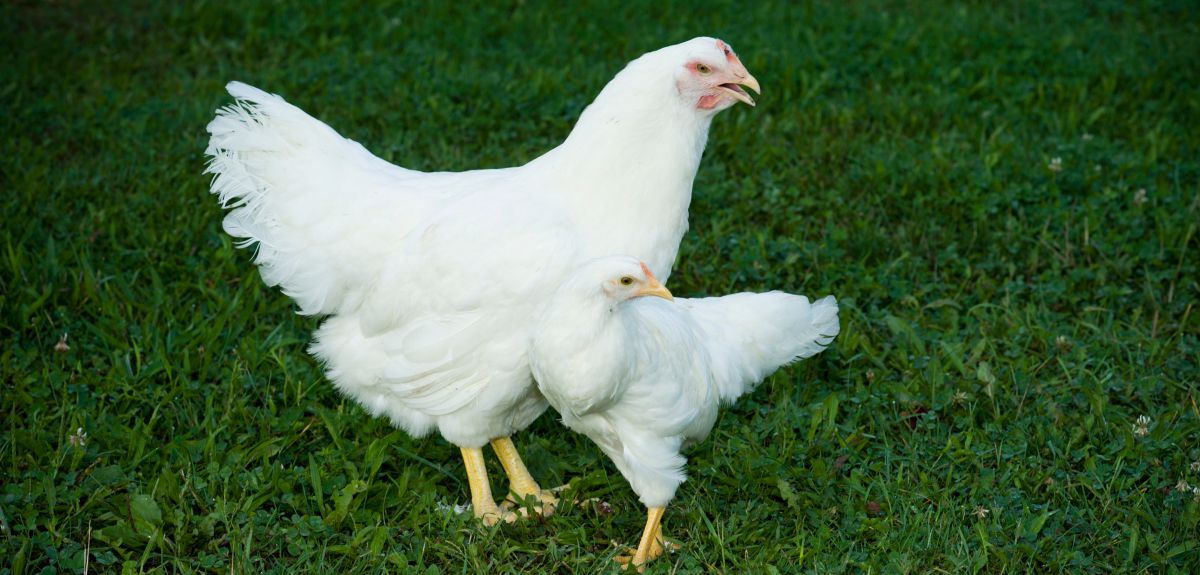By studying individual chickens that were part of a long-term pedigree, the scientists, led by Professor Greger Larson at Oxford University's Research Laboratory for Archaeology, found two mutations that had occurred in the mitochondrial genomes of the birds in only 50 years.
For a long time scientists have believed that the rate of change in the mitochondrial genome was never faster than about 2% per million years. The identification of these mutations shows that the rate of evolution in this pedigree is in fact 15 times faster. In addition, by determining the genetic sequences along the pedigree, the team also discovered a single instance of mitochondrial DNA being passed down from a father. This is a surprising discovery, showing that so-called 'paternal leakage' is not as rare as previously believed.
The study is published in the online early version of the journal Biology Letters. Using a well-documented 50-year pedigree of a population of White Plymouth Rock chickens developed at Virginia Tech by Professor Paul Siegel, the researchers reconstructed how the mitochondrial DNA passed from mothers to daughters within the population. They did this by analysing DNA from the blood samples of 12 chickens of the same generation using the most distantly related maternal lines, knowing that the base population had started from seven partially inbred lines. A selective mating approach within the population started in 1957, resulting in what is now an over tenfold difference in the size of the chickens in the two groups when weighed at 56 days old.
Senior author Professor Greger Larson said: 'Our observations reveal that evolution is always moving quickly but we tend not to see it because we typically measure it over longer time periods. Our study shows that evolution can move much faster in the short term than we had believed from fossil-based estimates. Previously, estimates put the rate of change in a mitochondrial genome at about 2% per million years. At this pace, we should not have been able to spot a single mutation in just 50 years, but in fact we spotted two.'
The paper says there is now considerable evidence of a disparity between long-term and short-term estimates of mitochondrial changes. One theory put forward in recent studies is that mitochondrial DNA evolves 'non-neutrally', meaning that there is a purifying selection process and negative mutations are removed more quickly, resulting in the impression of a short-term elevation in rates. There have been few studies of short-term mitochondrial evolution, including both mutation rates and paternal leakage. There is now direct evidence that it is not always inherited from the mother.
Study lead author Dr Michelle Alexander, from the University of York, said: 'The one thing everyone knew about mitochondria is that it is almost exclusively passed down the maternal line, but we identified chicks who inherited their mitochondria from their father, meaning so-called "paternal leakage" can happen in avian populations. Both of these findings demonstrate the speed and dynamism of evolution when observed over short time periods.'
Fuente: www.ox.ac.uk
